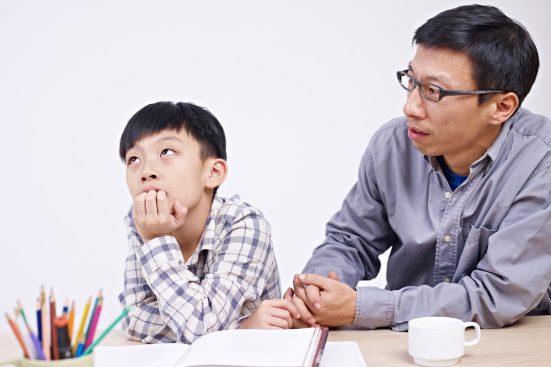One of the great joys of parenting is watching children play happily together. There’s nothing quite like the magic of seeing children laugh and have fun together, or watching children use their imagination, come up with a creative game and act it out.
Of course, in the real world (goodbye Johnson and Johnson moment) it doesn’t always happen that way. Instead, we often hear yelling and tears: “that’s not fair!”, “who said you were the boss??” and screaming and storming off sometimes ensues!
At this point, it’s much less delightful, it must be said. 🙂
While some kids will often eventually resolve the conflict themselves, some (think kids with big feelings, strong independent streaks or difficulties with flexibility just to name a few) find it harder. And for ALL children, sometimes play just gets hard.
It can be helpful for us as adults to proactively provide a few tips, coach and help children learn to play games kindly and fairly with each other.
Generally it’s better to do this kind of coaching before the problems begin, and to also ask children to think about specific games they play rather than “playing” in general. Here are a few specifics in coaching children to play kindly and fairly.
Ask children questions about their game playing
It can be useful to ask children questions about their play times/game playing regularly – to check in on their skill levels, any problems and anything that has improved/is going well. For example, we might ask:
Who are you playing with at the moment?
What games are you playing?
When was the last time you/your friend got mad during those games?
What happened?
What are you good at when playing with friends?
When do you need an adult’s help when playing with friends/siblings?
Once we are aware of how kids are going with their game playing, we can then look at skills.
There are a number of skills which we can look at when teaching children about “good play”, but below I’ve focused on three specific ones – generating rules, dealing with problems and kind game playing sentences.
1 Helping children generate useful “rules” or guidelines to play
When you know a child is playing a particular game regularly, or having problems with a particular activity with their peers, it can be useful to get them to talk about rules for that game before they begin.
For example:
Tell me about what you might do with Jack today?
What might you play?
What do you think might be some fair rules when you are playing that game?
I ask children to think about rules for the beginning, middle and end of games. I also talk about how it’s important to try to agree on the rules of a game before you start the game.
2. Helping children anticipate problems and develop problem solving strategies for games
It’s also often effective to ask children to develop strategies about game playing problems which have happened before – and ask them to generate potential solutions to these problems.
For example:
What will you do if you disagree on when balls are in/out when you are playing handball?
What could you do if both of you want to be the dance teacher when you are playing dance school?
When you play xbox today, how will you agree who gets what game at what time?
If children have trouble thinking about the problems that might come up (remember kids live in the moment, and often won’t anticipate/remember problems which as adults we are well aware of!), think of the problems you’ve seen happen previously – and ask them questions like this:
What could you do if someone wants to play the game and someone doesn’t?
What could you do if someone wants to finish playing and someone doesn’t?
What could you do if you disagree about the rules?
What could you do if you disagree about what happened?
What might be a good rule about what NOT to say or do?
What might be a good rule about what everyone agrees to do?
When thinking about what NOT to say, I talk with children about avoiding using the word “cheater”. For example, I say:
What happens if someone calls you a Cheater? What could you say instead if there is a problem?
If children have trouble thinking about problem solving strategies, I help them out by asking them about these ideas:
“I think……………(say the problem)” OR
“Can you please…………..(say what they want)” OR
“Let’s take a break” OR
“Let’s ask Mum/Dad for help” OR
“No big deal, let’s just keep playing”
If kids feel frustrated in a game they say: “I need a five minute time out” and they do something else for a minute.
3. Helping children generate kind sentences to use in games
I also have found that teaching children the specific words to say when being kind and fair in a game is more effective than talking generally about “being kind and fair”. This means coming up with “kind game playing sentences” for each game. For example:
What could you say to each other which would be a compliment/make them feel good?
What could you say that might make someone feel better if they are upset during a handball game/imaginery dance concert?
If children can’t think of kind game playing sentences you could make some suggestions, and ask children what they think about them. For example:
When could you say “Good shot”?
When could you say “Have another go”
What would happen if you said: “You go first”
What would happen if you said “Bad luck”
How could you congratulate people at the end of the game?
What might make a “losing person” feel better if it is a competitive game (would “winner packs up” be a good rule for this game?)
Last ideas about coach kids to play games
Kids will fight during game play. It’s totally normal. But usually they will fight LESS over time, if we teach them, specifically and slowly – how to play. Sometimes it can be helpful to actually ask children to play a game, following these rules, while we watch them for ten minutes.
If you can find time to do this, while you are watching do TWO things.
1. Coach them while they are playing (“can you remember some kind sentences to say”, “now’s the time to say “let’s take a break”, say it softly please, “remember what do you do BEFORE you start the game”, “let’s pretend someone breaks a rule – what will you do?”)
2. Notice their good play (“wow, great kind sentence”, “nice work on using a calm voice, I’m so impressed”, “You’re such a good sport to remember to say congratulations”, “hey you guys solved that problem so maturely all on your own”).
Spending this time (in the car on the way home, while you are unpacking a dishwasher, just before bed) brainstorming rules, problem solving strategies and kind sentences that children can use to help them play fairly and well together – and then spending time watching children play and coaching them through difficult interactions – takes time. However a few minutes here and there (it doesn’t need to be hours) often saves time in the long run.
It certainly won’t eliminate problems entirely but occasionally we might get that little 5 minute nirvana of watching children playing happily ?



